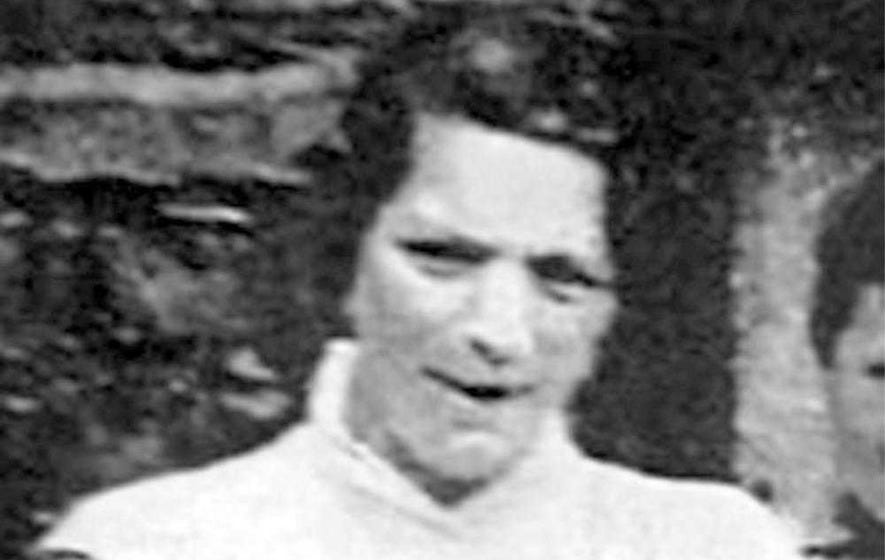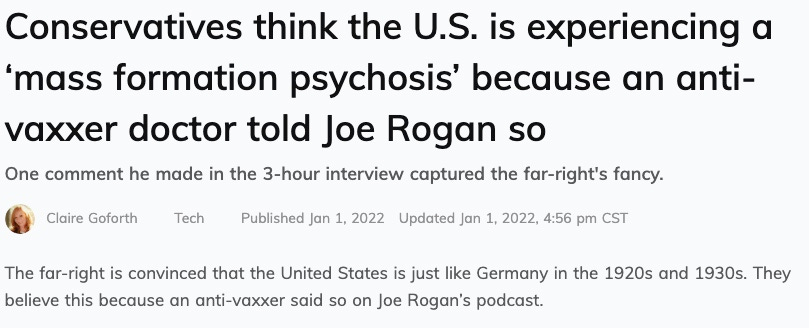Chris Bray is Stupid and Evil
Don't listen to that ignorant piece of shit
Lessons never learned. Lessons that never will be learned.
Back in Barack Obama’s first term, somewhere around the Pleistocene in Internet time, I spent a couple of years writing constant and detailed blog posts and news stories (and op-ed pieces) about an international controversy in academia and law enforcement. A group of researchers had conducted — and recorded — detailed interviews with former members of both republican and loyalist paramilitary organizations in Northern Ireland who had fought during the Troubles. To pierce the veil of silence around illegal activities that could still land people in prison, the Belfast Project researchers promised to keep interview materials hidden in the archives until interviewees had died, and the interviewers chosen for the project had close personal connections to the paramilitary organizations. One, Anthony McIntyre, who interviewed former members of the Provisional IRA, was himself a former member of that organization — once imprisoned at Long Kesh for almost two decades, with four years on the blanket — and had a PhD from Queen’s University Belfast.
Sending a former IRA member to interview former IRA members, the researchers got long and candid accounts of illegal political violence during the Troubles, and quietly delivered the tapes to be hidden in the archives at Boston College. Among the topics the interviewees discussed was the 1972 murder of Jean McConville, a widowed mother of ten children who was taken from her home in Belfast, shot in the head on suspicion of having been an informant working for the British army, and buried on a beach across the border in the Republic of Ireland. McConville’s murder was a particularly fraught topic, because she had been one of the Disappeared — one of the people killed by the PIRA who just vanished, leaving her children to wonder exactly what had happened to her (until her grave was found, decades later).
And then the police in Northern Ireland discovered that the tapes existed.
Police in the United Kingdom can work crimes across international boundaries by requesting help from law enforcement agencies in other countries, a process that’s been formalized by mutual legal assistance treaties. Pursuant to the UK-US MLAT, the PSNI asked the British government to ask the US Department of Justice to subpoena Boston College for the Belfast Project tapes. Years of legal wrangling followed, as the researchers strenuously fought the subpoenas (and Boston College, splitting with the researchers, mounted its own limp effort to limit the number of tapes they had to turn over).
Without wading back into the exceptionally complicated details of that long controversy, I learned two things from the experience that have never left me.
First, as I traveled to Boston to go to court, and as I wracked up PACER charges downloading legal briefs and judicial orders, I would have email exchanges with newspaper reporters who wanted me to tell them what had happened. I would shoot back an email message that said, “Judge’s ruling attached,” and they would reply, “Yeah, saw the attachment, what does it say?”
Over two years, through events in a trial court and in an appellate court, with multiple parties pursuing complicated and divergent courses, reporters would not read. They wouldn’t read the 40-page legal briefs filed by the lawyers for all the competing sides, but they also wouldn’t read a three-page order from a judge. They would not read, period. They wanted the tl;dr, in a sentence or two. “Yeah, what’s it say?”
In our own moment, I remain extremely confident that the flood of bullshit like this…
…is being slopped out by people who DRS — who Don’t Read Shit — about the topic they cover. Somebody in a government agency shot this dude an email message that said COVID VACCINES ARE MIRACLE DRUGS EVERYONE SHOULD GET THEM, and he said to himself, “Miracle drugs, got it!” We’re plagued by an army of people who pour “information” into the world based on two Twitter posts and a text message, after a full three to five seconds of deep thought:
My guy at the CDC says the vaccines are great, so.
Second, as I wrote about the implications of the subpoenas, I made complicated arguments about complicated events — forty years of complicated events, because subpoenas for interviews about a 1972 murder arrived at Boston College in 2011, and American courts wrestled with the problem into 2012. (And British courts wrestled with it until the late months of 2019, but more about that in a moment.)
To aggressively summarize a years-long public discussion, I said that the subpoenas would destroy the ability of academic researchers to get people to talk to them about dangerous topics, limiting the scope of future research (about which, see also the case of Rik Scarce).
But also, I said, the cost to future researchers wasn’t worth the value of the material the police would get, because the police “investigation” was a farce. McConville had been murdered in 1972; infamously, the Police Ombudsman for Northern Ireland concluded in 2006 that her kidnapping and murder had been ignored for decades: “The Police Ombudsman investigators have been unable to find any trace of any investigation into Mrs McConville’s abduction during the 1970s or 1980s.” Later, an investigation in the 1990s had been brief and perfunctory. After four decades of no effort at all, I argued, police weren’t actually investigating; rather, they had discovered that someone else had investigated, and they were running to Boston to borrow someone else’s work. Putting a tape in a machine and pressing play, I said, wasn’t investigating, and the laziness of the effort would doom it.
Link rot and the destruction of old comment systems makes it hard for me to show you this, but as I wrote in the Irish press, the American academic press, a group blog for academic historians in the United States, and my own sad little blog, every argument I made was dismissed as pro-IRA idiocy. The police are investigating a murder, you fucking moron! What the hell is wrong with you, IDIOT!?!? Commenters explored the precise cause and scope of my breathtaking idiocy: Is this Chris Bray person just really stupid, or is he, like, working for the terrorists? Above all, a small army of Internet Experts™ knew that my analysis was totally wrong, and the play wouldn’t end the way I said it would. The police would get the tapes, and then the police would get the killers. People are going to prison, you fucking idiot!
The police did get the tapes. Detectives from the Police Service of Northern Ireland flew to Boston, collected the tapes from the Department of Justice, and flew back to Belfast with them. Here’s what happened next:
Pretty much nothing.
Police arrested Sinn Féin leader Gerry Adams, who has long been suspected of having been the Provisional IRA commander who gave the orders for McConville’s murder and disappearance. They confronted him with the taped voices of people saying he did it; he shrugged and said he was awfully confused that people would tell such strange lies about him. Then he was released from jail, the end, effectively washed clean by the unspoken admission that the police couldn’t prove it. They pressed “play” on the tape machine and everything, but even tough investigative steps like that didn’t bring Adams down.
Another person accused of being a former leader in the Provisional IRA, Ivor Bell, was brought before a limited legal tribunal because of his diagnosis of vascular dementia, and acquitted on a charge of conspiring in McConville’s murder. Here’s the dismal punchline to the whole sick joke, from a BBC story:
Subpoenas in 2011; trial in 2019. Eight years of legal conflict, resulting in the tapes being thrown out of court as unreliable evidence — and then a not-guilty verdict.
Belfast Project interviewees whose tapes hadn’t been turned over to the police, fearing future subpoenas, demanded that Boston College return their interviews. At least one, Ricky O’Rawe, burned the tapes of his interviews. People who participated in years of extremely serious political violence, then told people about it so we could know what happened, destroyed the record of the past that they had chosen to create.
So yes: No one was convicted on any charges relating to the murder of Jean McConville, and now we’ll know less about the past. We’ve burned some history for no clear reason. The thing I said would happen is the thing that happened.
I will never forget the experience of evaluating evidence, reading hundreds or thousands of pages of court records, flying across the country to watch judicial proceedings, digging through historical documents, and coming to a set of reasoned conclusions that I presented logically and with facts — only to hear that you fucking idiot, the police say that this is a serious murder investigation, who are you to doubt that?
The POLICE, Chris! They SAY! Are you questioning the official explanation?
Yes.
You’ll dig, you’ll discuss, you’ll think and re-think, you’ll evaluate evidence and look for more, you’ll work to make an argument and to invite engagement with it, and you will — always — be angrily dismissed by people who repeat something they saw on the Huffington Post and never thought to question.
There is no point to caring about the things people like this say to you, or about you. Be who you are. Do your work.





The point that makes the vax "conspiracy theory" nonsense is that everyone - I mean everyone, would want a covid vaccine that worked and was safe. There is no reason for anyone, ever, to be against that. So for people, who have a stellar reputation built over a lifetime, to endanger their reputation and their job and their standing to discount an effective and safe covid vaccine makes zero sense. No, they didn't do it because they "wanted attention and money." C'mon, man!
What a sad and disheartening story! My condolences to you for your effort and to future generations deprived of these important records. I'm a baby boomer and I still remember a friend's parents exclaiming, "The police wouldn't arrest anybody unless they're guilty!" I was so stunned that I didn't even point out that even the courts didn't believe that and The Constitution forbade it. At least you fought the good fight.
"And somewhere between the time you arrive
and the time you go
May lie a reason you were alive,
but you'll never know."